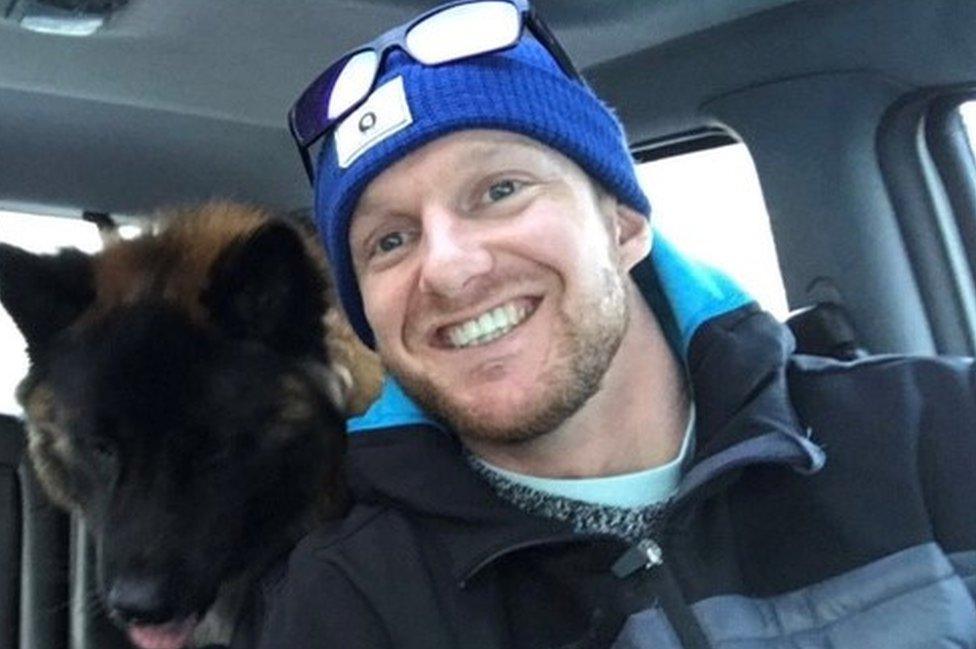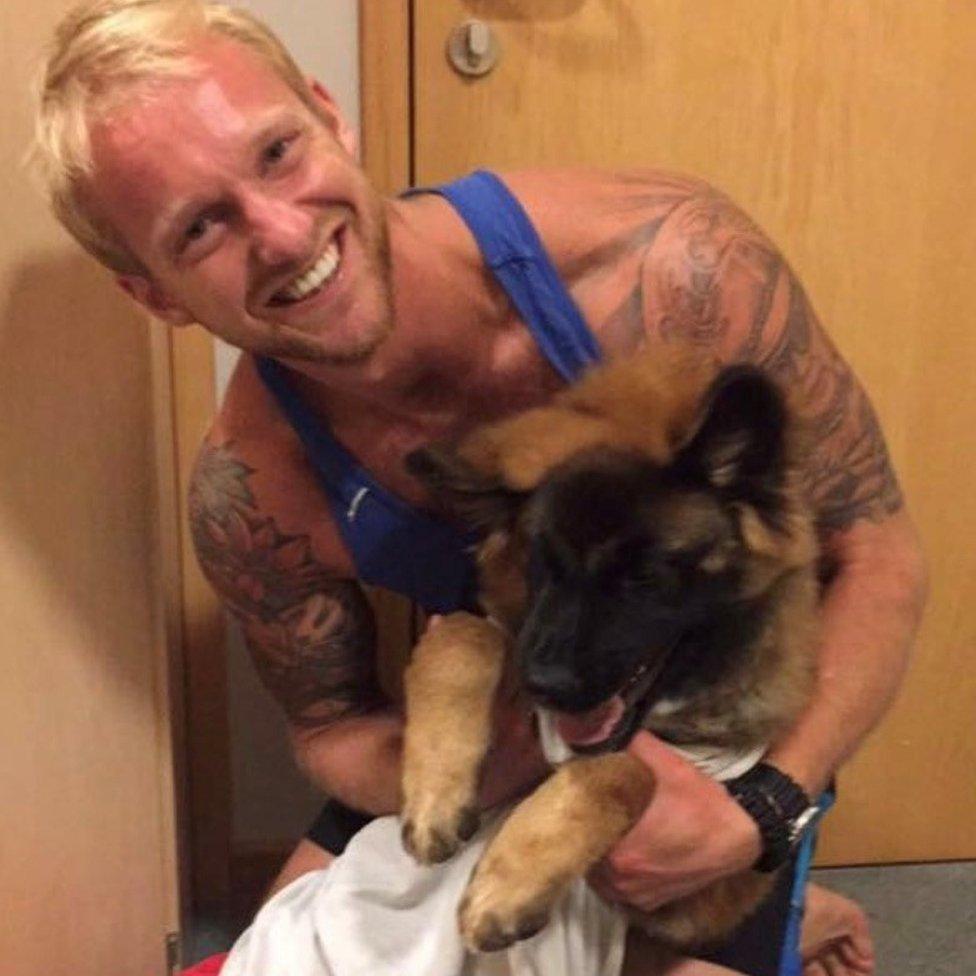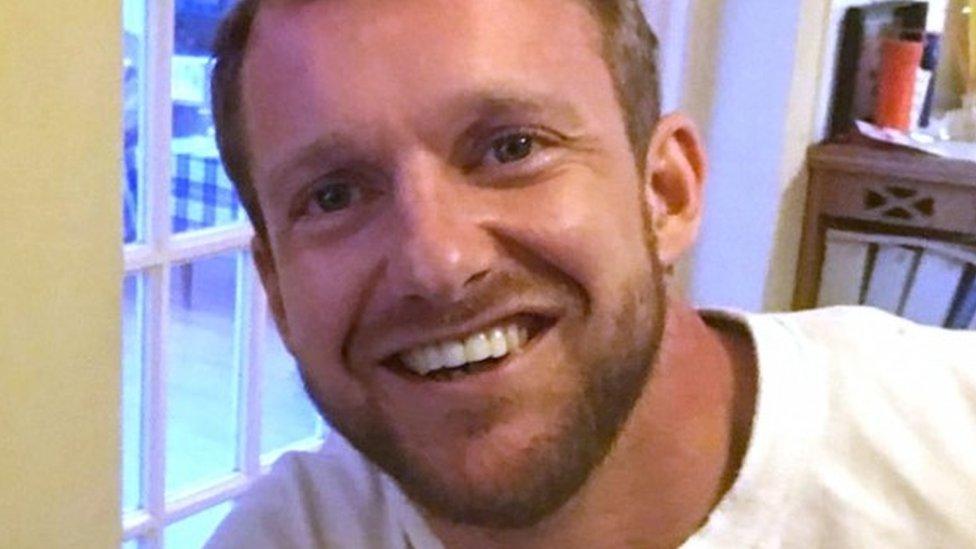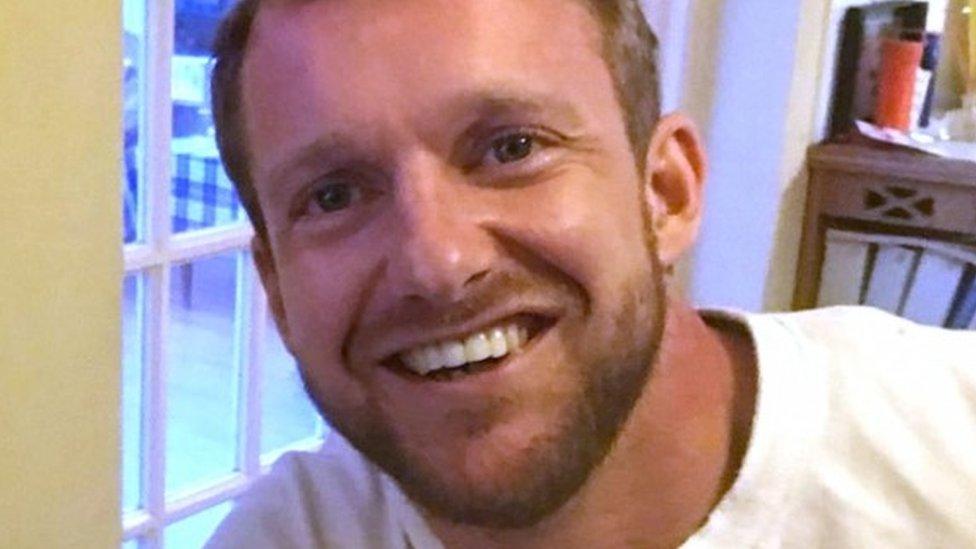Cpl Alexander Tostevin: 'Missed opportunities' in case of suicidal soldier
- Published

Cpl Alexander Tostevin had been left alone with just a list of phone numbers for support, the inquest heard
There were "missed opportunities" to reassess the risk posed by a special forces soldier who killed himself, a coroner has found.
Cpl Alexander Tostevin, who served with the Poole-based Special Boat Service, was found dead at home in March 2018.
The 28-year-old had been left alone with just a list of phone numbers for support, the inquest heard.
But Coroner Brendan Allen said he was not neglected by his superiors or military mental health staff.
The soldier's family believes he developed PTSD while serving with the Royal Marines in Afghanistan in 2010, where he was recognised for bravery.
Friends told the inquest he was drinking heavily and racking up large debts.
Cpl Tostevin, who grew up in Guernsey, told a welfare officer he was a "dead man walking" after the tour.
He later received a conviction after a nightclub fight and fined £10,000, and was also was facing a disciplinary hearing for buying cocaine and hiring a prostitute on a military credit card.

The soldier had been "asking for help for a long time" his family said
A community psychiatric nurse described him as having a low mood, anxiety and problems sleeping.
Royal Navy psychiatrist Capt John Sharpley asked that a civilian friend of Cpl Tostevin stay with him at all times, but he left three days before his death.
The psychiatrist admitted he "got it wrong" in assessing Cpl Tostevin's suicide risk.
Prof Chris Fox, another psychiatrist, told the inquest: "The individuals checking up on him were not trained in mental health. They were just checking in to see if he was okay and still alive.
"I don't see how this man could have been kept safe."
'Inadequate care'
While the coroner found that having a friend remain with Cpl Tostevin was not inappropriate, he concluded it had not been made clear that he needed to be with him at all times.
Mr Allen also said an email sent by a welfare officer about a sharp deterioration in his mental health was not picked up.
Recording a conclusion of suicide, he said "there was a missed opportunity" in the "light of information disclosed three days before his death".
He said he would be writing a report to prevent future deaths looking at the risk of underreporting by service personnel of mental health symptoms.
This was due to the fact military mental health practitioners were required to report their concerns to superiors if the condition could "undermine operational effectiveness", he said.
Following the conclusion, Cpl Tostevin's mother, Alison, said her son had been "asking for help for a long time and as a family we feel he was failed".
She added: "We hope more members of the forces will talk about mental health - Alex wouldn't want anyone else to suffer as he did.
"Alex told all those involved in his care that he was unwell and suffering and we believe the care that he received was inadequate.
"We miss Alex so much. We love Alex and will miss him until the day we die, and not until that day will we stop saying his name."
If you're affected by any of the issues in this article you can find details of organisations who can help via the BBC Action Line here.

Follow BBC South on Facebook, external, Twitter, external, or Instagram, external. Send your story ideas to south.newsonline@bbc.co.uk, external.
Related topics
- Published18 November 2021

- Published17 November 2021

- Published15 November 2021

- Published11 November 2021

- Published10 November 2021

- Published9 November 2021

- Published25 March 2011